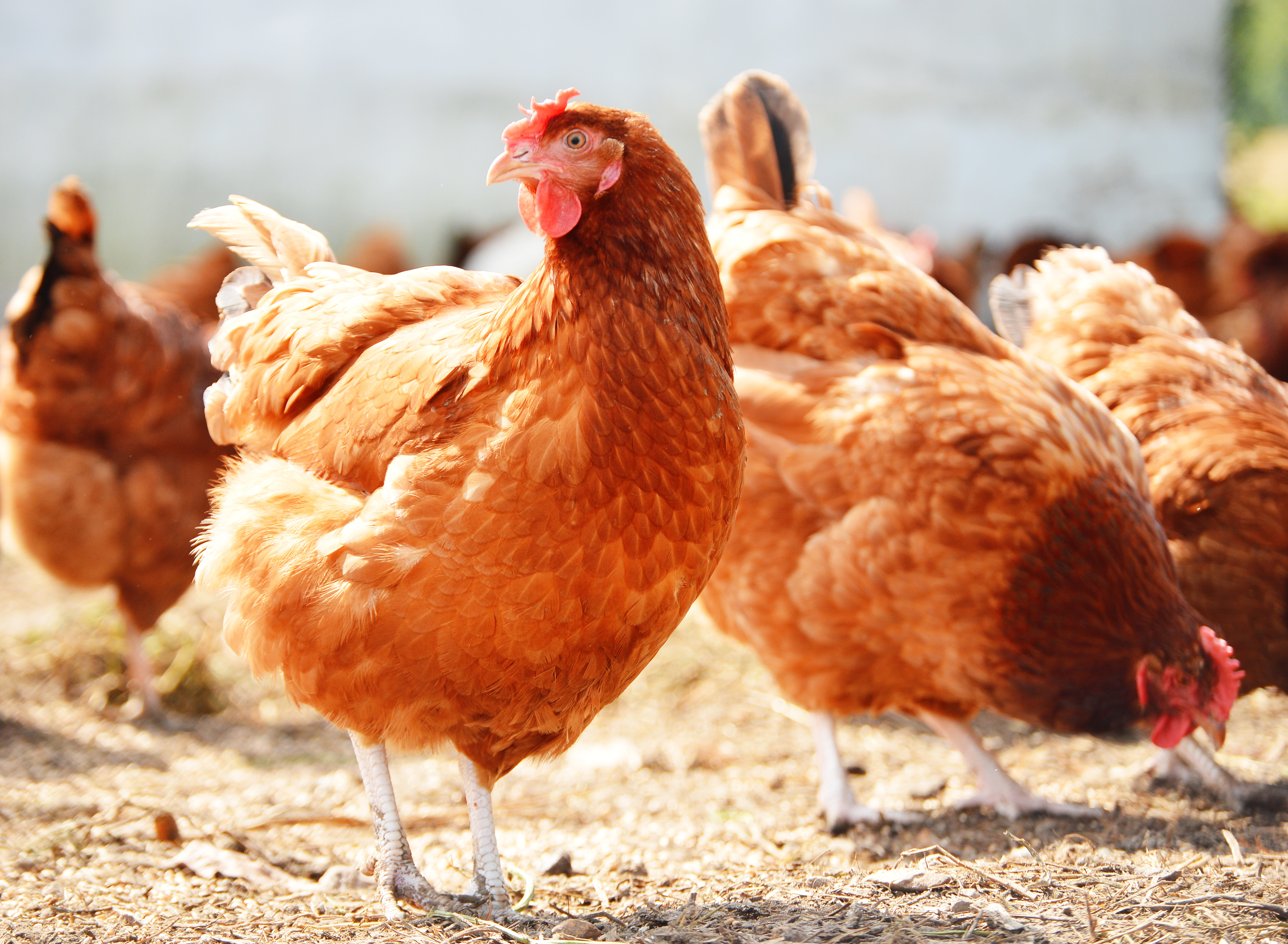Chickens outdoors on dirt

Photo courtesy of Shutterstock
Maybe you think having a few chickens in your own coop has no connection to cockfighting. Why would there be? Your chickens are pets with the added bonus of providing healthy eggs for your dining pleasure. You call them affectionately by name, and have a relationship with them. Lovely birds, right? They are as far from the alleged “sport” of cockfighting as a rowboat is from a luxury cruise ship.
Nonetheless, there is a connection, but not likely the way your imagination has just taken off.
Backyard chickens are becoming increasingly popular, and spring is the time of year many folks will plan a coop. However, in certain parts of Southern California, the United States Postal Service will not ship live birds or eggs. Why? Because of virulent Newcastle disease.
Virulent Newcastle disease (VND) “is a contagious and fatal viral disease affecting the respiratory, nervous and digestive systems of birds and poultry. The disease is so virulent that many birds and poultry die without showing any clinical signs,” says the USDA, the folks in charge of knowing these things about poultry. People rarely contract VND and signs are mild if it happens. Thankfully, it does not cause a food safety concern for people as that would be a whole other ball game.
However, if VND were to become rampant in the California poultry industry, it could cause incredible economic loss for chicken producers and the California economy.
In birds, the disease causes respiratory signs including sneezing and difficulty breathing; green, watery diarrhea; swelling around the head; and neurological signs like turning in circles and twisting the head and neck. Unfortunately, as mentioned, one of the most common signs of the disease is sudden death. The fatality rate approaches 100%. Vaccination against the disease can help, but the USDA says that like many vaccines, it is not 100% effective.
So, what can you do?
The best way to prevent the disease from spreading like a wildfire is with strict biosecurity. This means the owner of the chickens -- whether a backyard coop of three hens or a producer with thousands of chickens -- needs to take action to prevent the disease from being carried onto or off of the premises. The USDA says this can be done with
- thorough handwashing and water and scrubbing of boots (here’s some appropriate disinfectants) before entering or leaving an area where the chickens are held
- cleaning and disinfecting vehicle tires and equipment before they move on or off the property, and
- isolating birds who are new to or returning to the flock for 30 days before mingling.
Because large poultry producers are usually very good about keeping up with biosafety, VND tends to be a larger problem in small backyard chicken fanciers and in cockfighting.
This isn’t California’s first time with the VND rodeo.
In 2002, California had a separate outbreak of VND, also in Southern California. The disease originated in privately owned game fowl, the type of bird used in cockfighting. Then, like now, cockfighting was illegal in California. The disease was thought to have come from Mexico in birds smuggled in for fights, as suggested by JAVMA. Unfortunately, transportation unknown to health officials makes it even harder to control an outbreak. Cockfighters move birds indiscriminately to wherever the fight is taking place, and because their actions are illegal, they are more likely to hide sick or dead birds. Therefore, cockfighting affects all of us, not just certain people in certain areas of the country.
It is a problem that could take down the entire poultry industry. Eventually, California was able to eradicate VND from the 2002 outbreak, but then it happened again.
The current outbreak began in May of 2018 and is once again concentrated in Southern California. However, VND has been detected up north in Alameda County, which is east of San Francisco, and in Utah and Arizona. It is possible these isolated cases were due to birds moving out of the southern California quarantine area illegally, or that people who visited birds in quarantine areas did not practice good biosafety before returning to their own chickens. Limiting illegal cockfighting is one of the reasons Los Angeles County passed a rooster ordinance that limits the number of roosters held on any given property.
If you keep backyard chickens or own other birds, there are steps you can take to help stop the spread of VND. The biggest tip is don’t move your birds. If you handle chickens or their equipment, wash your hands and boots thoroughly before leaving the area. Better yet, dedicate a pair of boots to use in your coop that stays with your chickens; don’t bring them into the house or wear them anywhere else other than the coop. If you’re at a feed store or similar location, don’t handle the chicks, no matter how incredibly cute they are (it’s difficult, I know). Disinfect any equipment new to your coop before bringing it in to your chickens.
If you are in California and you have any birds sick with signs of VND or any sudden deaths, please report it to the California Department of Food and Agriculture at 1-866-922-2473.